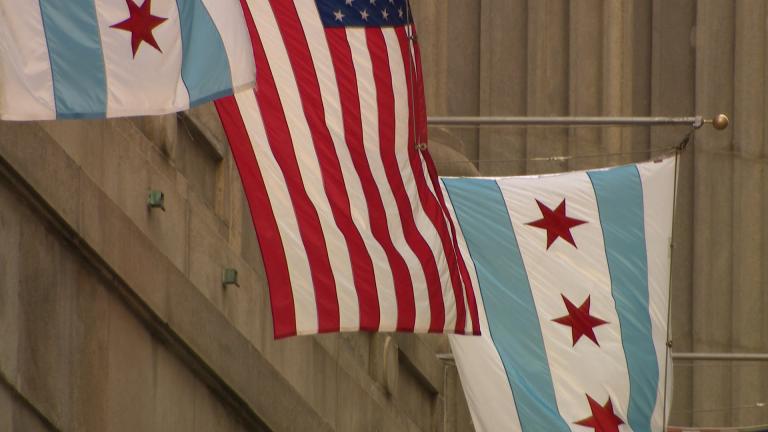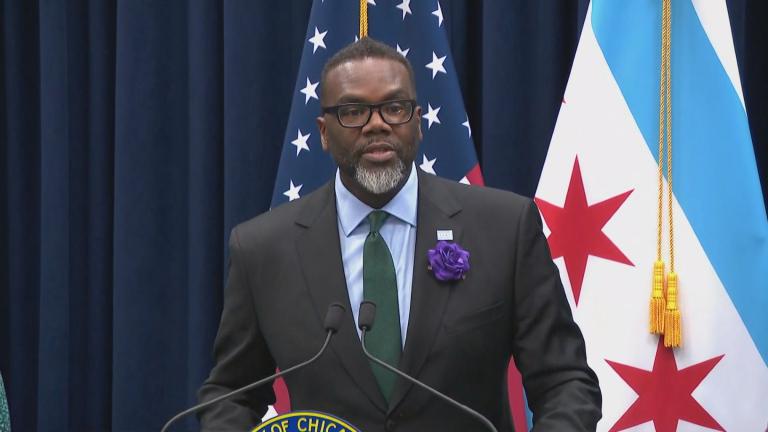Chicago Police Department officials did not violate the Illinois Freedom of Information Act when they refused to turn over nearly five decades’ worth of secret files detailing allegations of misconduct by officers in 2015, the Illinois Supreme Court ruled.
The unanimous Supreme Court decision, released Sept. 22, resolves a 7-year-old lawsuit brought by Charles Green, who was sentenced to life in prison at age 16 after being convicted in a 1985 quadruple murder. Justice Lisa Holder White joined the court in May, after oral arguments in the case, and did not participate in the decision.
Green, who was released from prison in 2009 after serving 24 years, asked the Chicago Police Department for copies of closed complaints against officers from 1967 to 2015 “in order to help him discover evidence of his innocence and to preserve and disseminate evidence of innocence to others wrongfully convicted,” according to his lawsuit.
Jared Kosoglad, Green’s attorney, told WTTW News that he was disappointed by the ruling, which he said was “technical” in nature and did not rule on the substance of Green’s request for information.
“Transparency is going to happen, one way or another,” said Kosoglad, who filed a new Freedom of Information Act request for the records hours after the ruling was released.
In a statement, Chicago Law Department spokesperson Kristen Cabanban said the city was pleased with the ruling.
The Chicago Police Department never responded to Green’s November 2015 freedom of information request, which is considered a denial under state law. That meant the city could not reject the request because of the volume of documents requested or charge Green for copying the documents if a judge found the denial to be improper.
However, a separate court case meant Green’s lawsuit would spend most of the next decade in litigation limbo. More than a year before Green filed his request for information, the Chicago Tribune and Chicago Sun-Times had filed a similar request for documents detailing all complaints filed against officers from 1967.
The Fraternal Order of Police, the union that represents the department’s rank-and-file officers, asked a judge to prevent city officials from releasing those records, saying that the union’s contract with the city required that all disciplinary records older than four years be destroyed.
Although a judge sided with the police union in 2014, and ordered those disciplinary files destroyed, that ruling was reversed by a state appellate court. In 2016, the Illinois Supreme Court ruled the disciplinary files should not be destroyed and were public records.
In 2021, the Chicago City Council approved a new contract with the police union that explicitly preserves all disciplinary records, in compliance with the Supreme Court’s decision.
When Green asked a Cook County judge in December 2015 to order the department to fulfill his request for information, an injunction issued in May 2015 as part of the newspapers’ case prevented the city from releasing records of complaints filed against police officers.
But that injunction was lifted by the Supreme Court’s decision in 2016. Kosoglad argued that police officials should have fulfilled his client’s request for information immediately.
In 2018, a Cook County judge ordered Chicago Police officials to release records of all complaints filed against police officers between 2011 and 2015 to Green and his attorneys by Dec. 31, 2018.
In January 2020, Judge Alison Conlon found that police and city officials had “willfully and intentionally failed to comply” with that order, and fined the city $4,000. She also ordered all of the records of complaints against police between 1967 and 2011 be released to Green and his attorneys.
Lawyers for the city appealed that decision, telling an appellate court it would take 10 years and cost $8 million to process and produce records of every complaint filed against a Chicago Police officer between 1967 and 2011, as requested by Green and his attorneys.
Kosoglad told the Supreme Court he declined to file a new Freedom of Information Act request because it would cause unnecessary delay and “put him at the back of the line.” In addition, filing a new request would have allowed the leaders of the Chicago Police Department to reject the request because of the number of documents requested and force Green to cover the cost of the search and production.
An appeals court sided with the city, and Green and his attorney appealed the case to the Illinois Supreme Court, which upheld the ruling of the appellate court.
In July 2020, a recommendation from city attorneys that the city pay $500,000 to settle Green’s lawsuit was never considered by the Chicago City Council. Progressive alderpeople objected to the agreement because it did not include a provision to release the records Green sought to prove his innocence. At the time, Ald. Maria Hadden (49th Ward) said the settlement “looks like hush money.”
That conflagration prompted former Inspector General Joseph Ferguson to propose creating a database of Chicago Police Department misconduct files dating back to 1994 in an attempt to reverse what he called the city’s “long history” of covering up police misconduct.
However, that proposal ran into a brick wall of opposition from alderpeople, some of whom did not want to make it easier for police critics to access misconduct files, even though the public is already entitled to those records.
A revised proposal from Ald. Scott Waguespack (32nd Ward) that would have created a database of misconduct files dating back to 2000 also failed to advance in May 2021, even with the support of Mayor Lori Lightfoot.
Ferguson and other transparency advocates blasted that proposal as nothing more than “smoke and mirrors” even as mayoral allies tried to assuage the concerns that the database would only capture less than 5% of all complaints lodged against officers.
There has been no progress on the database proposal in nearly 18 months.
Since his arrest, Green has maintained his innocence, saying he was coerced into confessing that he was paid $25 to knock on the door of a drug dealer’s house so a rival drug dealer and an accomplice could enter the building where four people were stabbed to death.
Green said police questioned him for 27 hours, and he was prevented from presenting evidence at trial that shows he was not present at the West Side home at the time of the crime.
Contact Heather Cherone: @HeatherCherone | (773) 569-1863 | [email protected]








